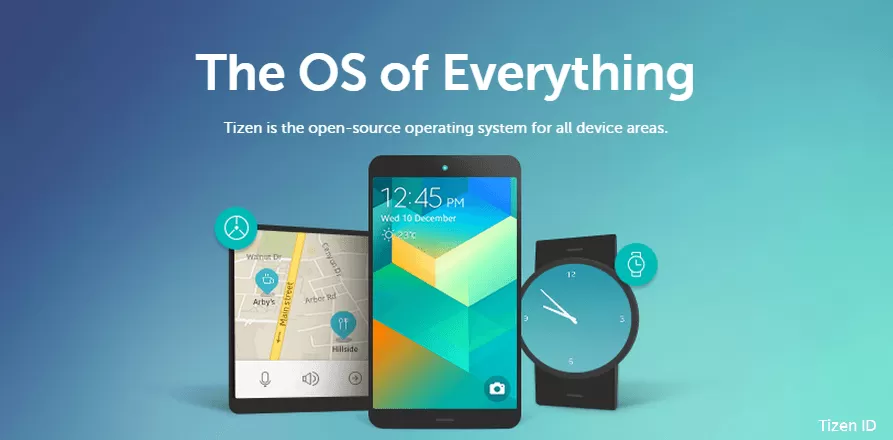2608
Tizen OS and it’s Future Development
By: Digital Dividend | Comments Off on Tizen OS and it’s Future Development | View: 10725
According to Wikipedia, “Tizen is an open source, standards-based software platform for multiple device categories, including smartphones, tablets, netbooks, in-vehicle infotainment devices, smart TVs, and more. Tizen offers an innovative operating system, applications, and a user experience that consumers can take from device to device.”
What is Tizen OS? Samsung-powered Tizen OS promises a whole new ecosystem in which it provides a lighter, faster and more efficient OS. Statistics from Samsung’s Training Document report that Tizen improves booting time over Android by 48%, saves power consumption by 17%, reduces app times by 22%, and does wonders to Internal Memory Optimization by 30%.
One of the key features of Tizen OS is that it is an open source platform, with a vision to connect all electronics, mobiles, and wearable devices all under one umbrella of Tizen OS. Another feature is that it offers a fast launch speed and enhanced web browsing with its HTML5 compatibility.
How is Tizen going to impact us in the future? Many say that Tizen is not only focusing on an OS for smartphones, but that it plans to run the IoT (Internet of Things).
What exactly does the term ‘Internet of Things’ refer to? In 2013, the Global Standards Initiative explained the IoT as “the infrastructure of the information society.” Imagine a world full of smart-‘things’ controlled by machines and sensors making everything sync together. Legal scholars suggest that we look at “Things” as a “complex mixture of hardware, software, data and services.”
When we talk about smart-things, we are not strictly focusing on ‘machine to machine’ (M2M) communication – here we are talking about sensors. A sensor is not a machine. It doesn’t operate in the same sense that a machine does. It measures, evaluates and then reacts. The Internet of Things (IoT) comes together with the connection of both sensors and machines.
The real worth that the IoT creates is at the intersection of gathering data and leveraging it.
Tizen OS cannot be compared to any other mobile platforms at this stage because it is too young – there is a lot more to experience and explore with it. But one thing is for sure – there are some promising factors about Samsung’s OS.
First, Samsung’s prominent position in the mobile market is a benefit. Samsung has set a clear strategy to move away from Google’s Android OS, which is used in their smartphones. The company simply cannot lock itself into something outside of their own control.
Another promising factor is that Tizen and Android are both based upon Linux. This offers the potential for Tizen to run Android Apps as well. Tizen’s system has an additional layer that’s called the Application Compatibility Layer (ACL), which allows Android apps to run on Tizen as smoothly as they run on Android. This opens up a whole new gateway for developers to port their apps to its app store and give them a head start.
Lastly, Tizen’s graphics accelerators are much faster than Android’s – this demonstrates huge potential for Tizen in the mobile gaming sector.
Samsung and Intel together are creating an ecosystem in which all devices, i.e. electronics, wearables, phones, television, automobiles and other ‘things’ can be bound within a single platform, allowing them to be controlled and connected with each other.
Let’s take a look into the future. When we build bridges, we can use smart cement: cement equipped with sensors to monitor stresses, cracks, and other problems. This is cement that alerts us to fix problems before they cause a catastrophe. Now if there’s damage in a bridge, the same sensors in the concrete will detect it and communicate the information via the wireless internet in the car. Once the car knows there’s danger ahead, it will instruct the driver to slow down, and if the driver doesn’t, then the car will slow down automatically for him.
This is just one of many ways that the future IoT looks like and how it will affect us and the way we use smartphones. It appears a bit like a sci-fi movie in which one can operate all the devices with just one remote control (smartphone). If it is implemented properly like Samsung and Intel are aspiring to do, then this can be the next big thing. It will be too early to say how Samsung will handle it and make it useful in our daily life.
Is HubSpot CMS The Right Choice For You?
 Pakistan : +92 21 3497 3529
Pakistan : +92 21 3497 3529 Sweden : +46 (0)21 475 54 50
Sweden : +46 (0)21 475 54 50


0 Comment